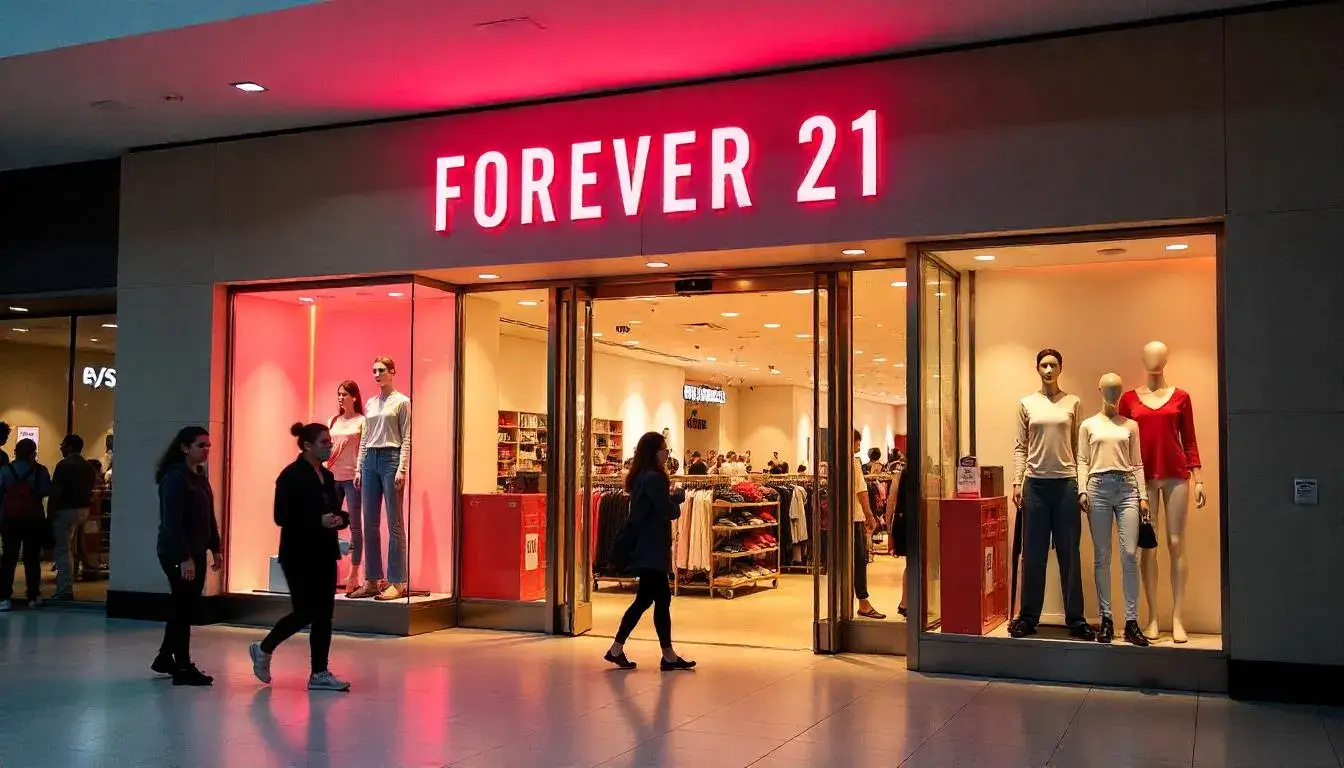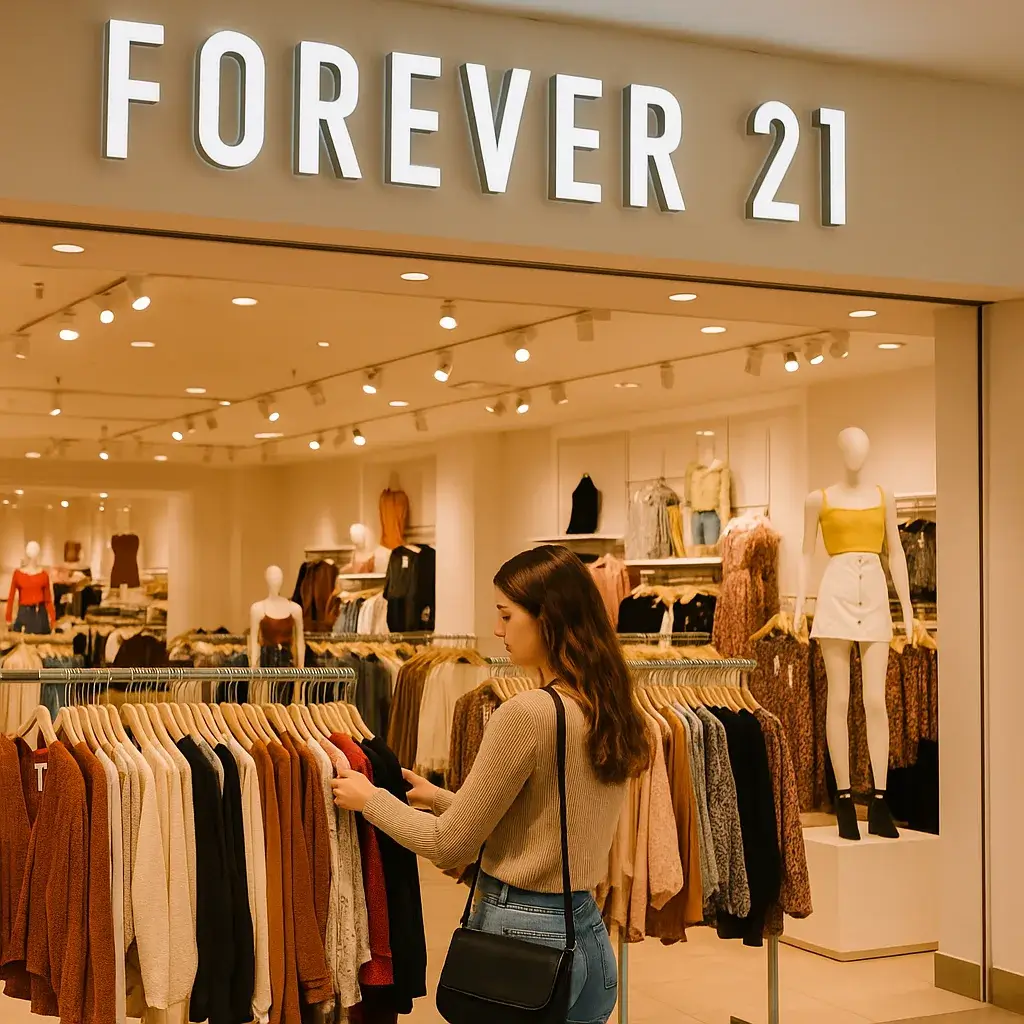Who is the Owner of Forever 21

Forever 21, once a powerhouse in fast fashion, has undergone several ownership changes in the last decade. This article dives deep into the brand’s current ownership, historical transitions, and the stakeholders shaping its future.
We’ll explore whether it’s privately or publicly owned, examine the roles of major companies like Simon Property Group and Authentic Brands Group, and revisit the founding story of Forever 21. If you’re curious about who truly owns Forever 21 today, this is your complete guide.
Understanding Forever 21’s Legacy
The Rise of a Fashion Giant
Origins in Los Angeles
Forever 21 was founded in 1984 by Do Won Chang and Jin Sook Chang, a Korean-American couple. Originally called Fashion 21, the store catered to the Los Angeles Korean-American community.
Expansion and Rebranding
By the 1990s, the brand rebranded to Forever 21 and aggressively expanded across the U.S. and globally. Known for its ultra-trendy, low-cost fashion, Forever 21 became a symbol of fast fashion’s explosion.
Business Model and Growth Strategy
Affordable Trends
Forever 21 thrived by offering affordable, quickly rotating fashion items. It targeted teens and young adults with a sharp eye for runway-inspired trends.
Global Footprint
At its peak, Forever 21 operated over 800 stores worldwide, including locations in the Middle East, Asia, Europe, and Latin America.
Ownership Timeline: From Founders to Conglomerates
Initial Ownership: Do Won and Jin Sook Chang
Family-Owned Business
Forever 21 remained privately owned by the Chang family for over 30 years. The couple maintained full control, avoiding public investment.
Challenges in Management
Despite early success, the company faced criticism for labor practices, rapid store openings, and overexpansion.
Financial Trouble and Bankruptcy Filing
The 2019 Bankruptcy
In September 2019, Forever 21 filed for Chapter 11 bankruptcy. This shocked the retail world and signaled deeper problems in the fast fashion industry.
Reasons Behind the Bankruptcy
- Overexpansion with too many large-format stores
- Declining mall foot traffic
- Rise of e-commerce and fast competition
- Inefficient supply chain management
Who Owns Forever 21 Now? [2025 Edition]

Post-Bankruptcy Acquisition
The Tri-Party Acquisition
In February 2020, Forever 21 was acquired by a group of three companies:
- Authentic Brands Group (ABG)
- Simon Property Group
- Brookfield Property Partners
Authentic Brands Group (ABG)
Brand Portfolio Manager
ABG is a brand development, marketing, and entertainment company. It owns and licenses a wide range of consumer brands like Juicy Couture, Aeropostale, and Barneys New York.
Role in Forever 21
ABG owns the intellectual property of Forever 21. It oversees global branding, marketing, and licensing.
Simon Property Group
A Retail Real Estate Giant
Simon is the largest mall operator in the U.S. By acquiring Forever 21, it aimed to fill vacant mall space and support a retail anchor.
Retail Revitalization
Simon also invested in other troubled retailers like JCPenney and Brooks Brothers, signaling a new business model.
Brookfield Property Partners
Real Estate Investment Company
Brookfield co-invested with Simon in Forever 21’s physical retail operations. They manage and optimize store locations, aiming to drive traffic and profitability.
How Ownership is Structured
Not a Public Company
As of 2025, Forever 21 is not publicly traded. It is privately owned by this consortium: ABG (brand), Simon (real estate), and Brookfield (real estate and investment).
Day-to-Day Operations
The new structure separates operations, branding, and real estate. This allows Forever 21 to focus on digital growth, licensing, and store revitalization.
Forever 21’s Business Under New Ownership
Digital Expansion
Emphasis on E-commerce
The brand has improved its website, optimized mobile shopping, and partnered with online platforms like Amazon and ASOS.
Social Media Integration
Forever 21 has rebuilt its brand on TikTok and Instagram with influencer collaborations and viral campaigns.
Store Strategy
Smaller Store Formats
Post-bankruptcy stores are smaller and more cost-efficient. Focus is on high-traffic, high-return locations.
International Licensing
Many overseas locations are now licensed operations, reducing overhead and allowing local adaptations.
Sustainable and Ethical Shifts
Responding to Criticism
While Forever 21 still faces scrutiny, its new ownership is introducing:
- Sustainable materials in limited collections
- Ethical sourcing policies
- Partnerships with recycling programs
Leadership and Executive Team
CEO and Executive Changes
Since the acquisition, new leadership has been introduced to oversee modern retail strategies, supply chain efficiency, and brand growth.
The Chang Family Today
Do Won and Jin Sook Chang are no longer involved in day-to-day operations. They stepped away following the bankruptcy acquisition in 2020.
Timeline of Key Ownership Events
1984 – Founding by the Changs
2019 – Files for Bankruptcy
2020 – Acquired by ABG, Simon, and Brookfield
2022 – Digital revamp and brand relaunch
2024-2025 – Sustainability and licensing expansion
Industry Perspective: Where Forever 21 Stands in 2025
Competition
Forever 21 competes with:
- Zara
- H\&M
- Shein
- Boohoo
- American Eagle
Market Position
While no longer the dominant fast fashion leader, Forever 21 is rebuilding its presence through a hybrid retail model and strategic partnerships.
Common Questions Answered
Is Forever 21 still in business?
Yes, Forever 21 is still operating in 2025, both online and in select stores.
Is Forever 21 a public company?
No, Forever 21 is privately owned.
Who are the major stakeholders?
Authentic Brands Group, Simon Property Group, and Brookfield Property Partners.
What happened to the founders?
They exited the business after the 2020 acquisition.
Final Thoughts
Forever 21’s story is one of dramatic rise, sudden decline, and ongoing reinvention. With new ownership focused on sustainability, e-commerce, and operational efficiency, the brand is carving out a new future. Whether you’re a fashion follower or industry analyst, understanding Forever 21’s ownership today offers insight into the evolving world of fast fashion.
Let me know if you’d like to include internal links, outbound citations, or an image suggestion for this article.
Related Posts
Why Ecommerce Business Is the Best Startup Option Today Shopify Website Builder vs Competitors: Which One Wins? Top B2B Ecommerce Solutions for 2025: Powering Your Business Growth Shopify Capital Explained: How It Helps eCommerce Stores Grow Without Traditional Loans Top 10 eCommerce Web Design Agencies in 2025: Who’s Leading the Game?


Leave a comment